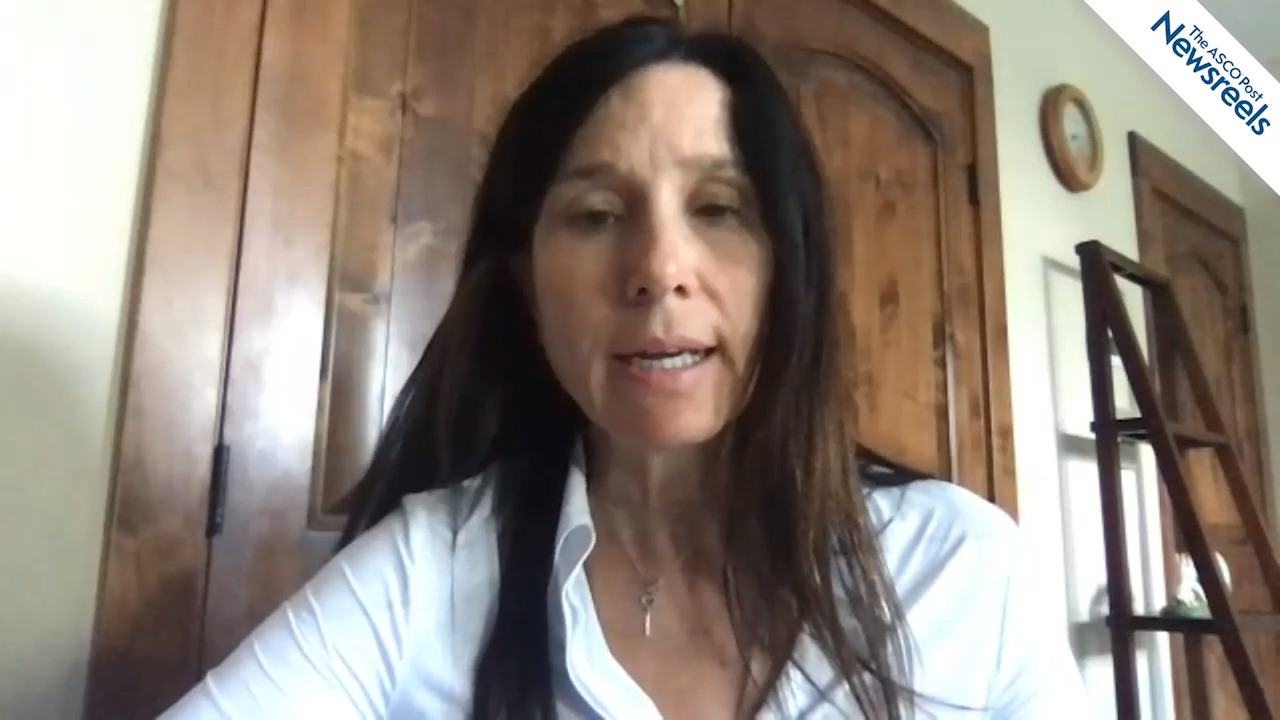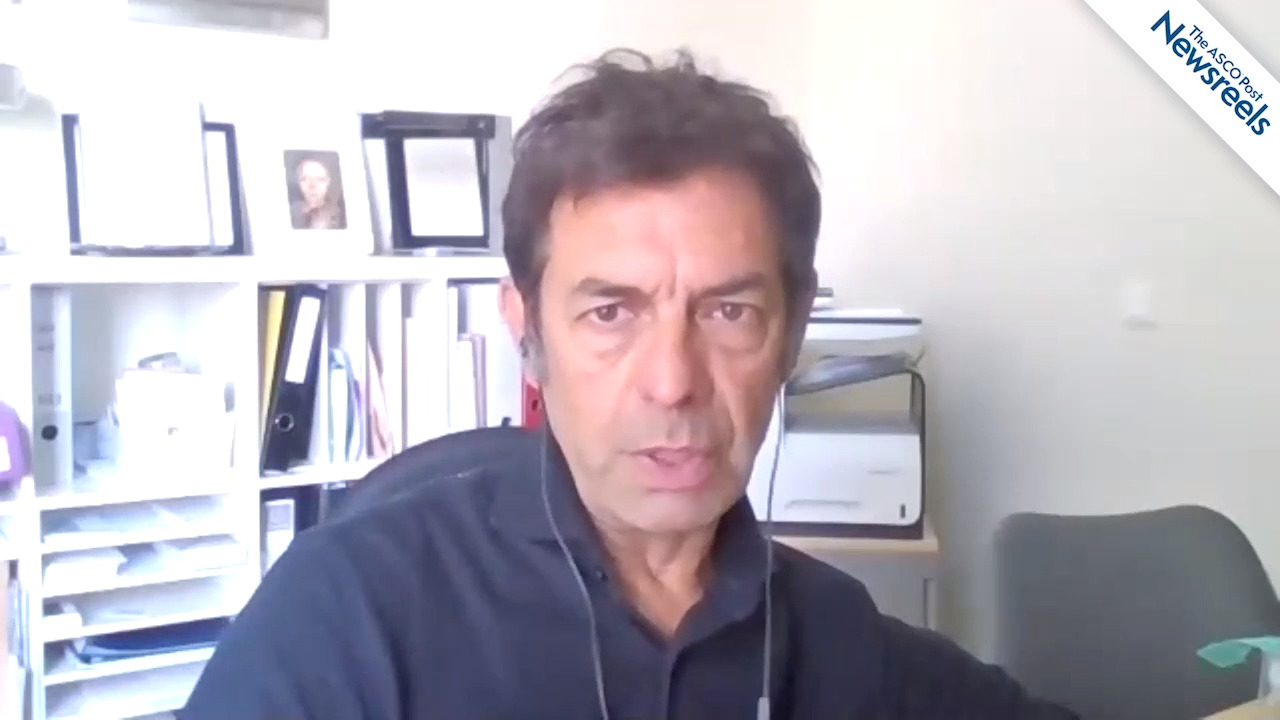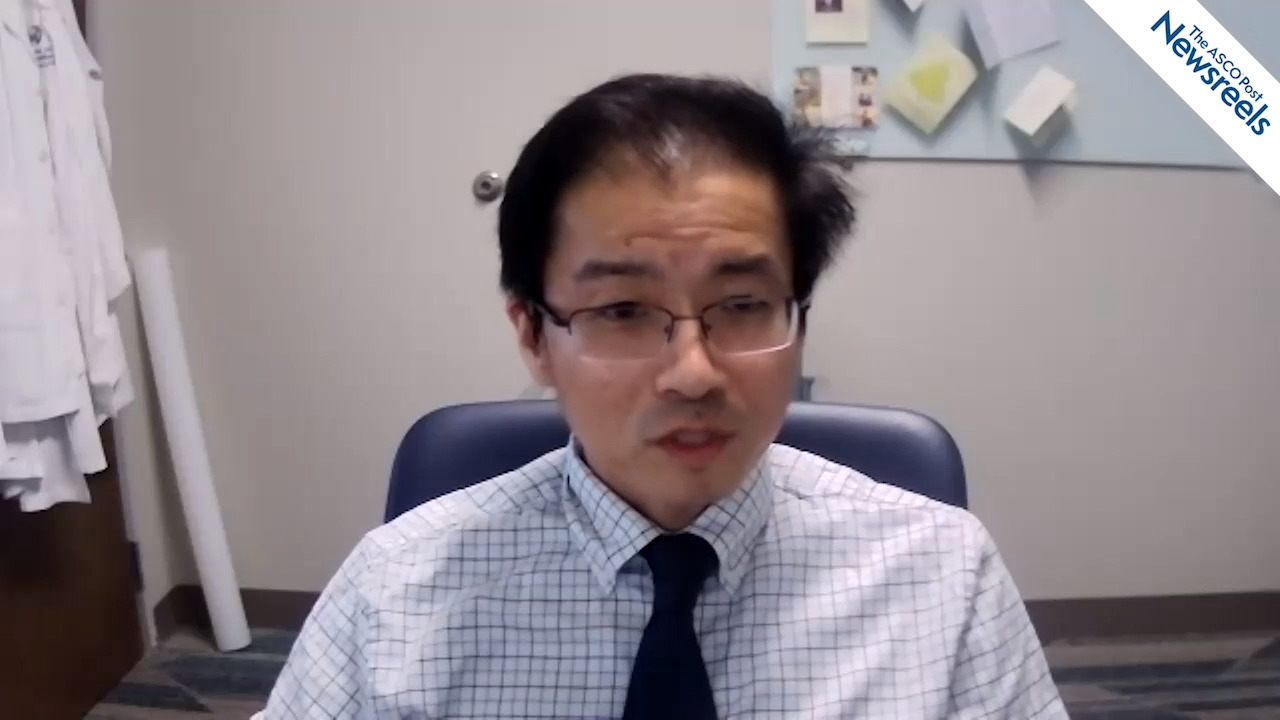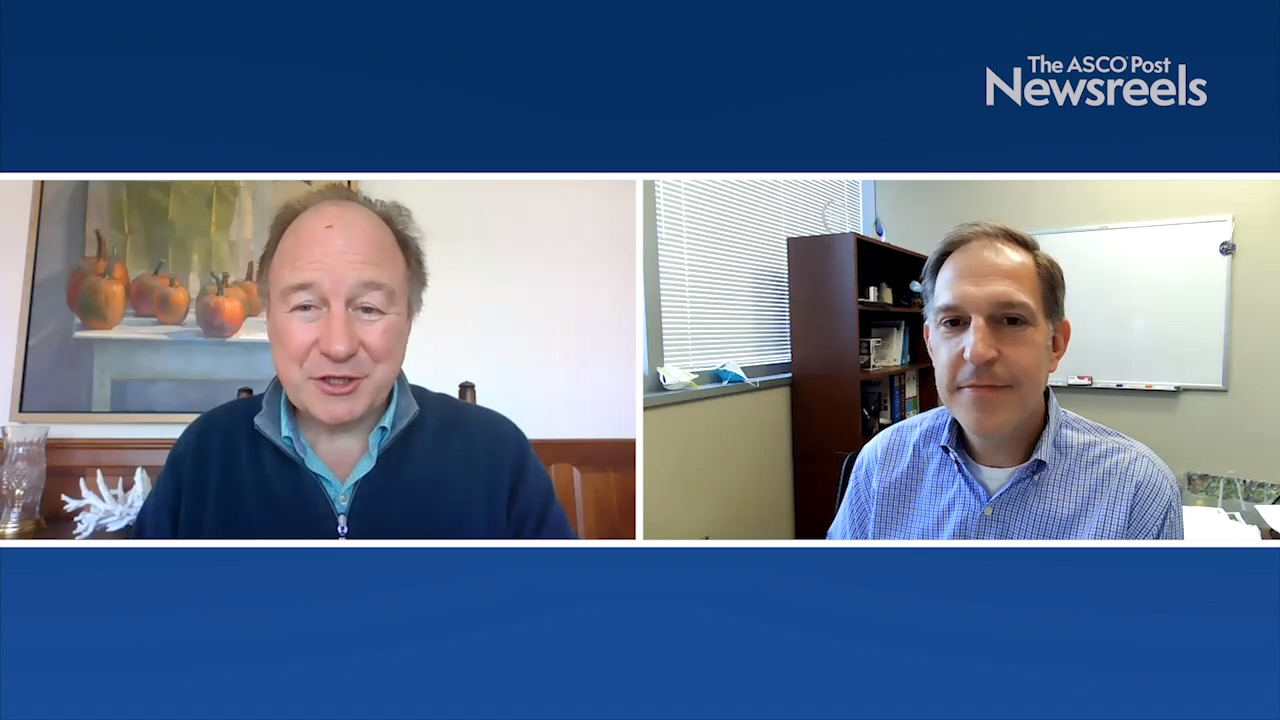FDA Approves Daratumumab and Hyaluronidase-fihj With Pomalidomide and Dexamethasone for Pretreated Patients With Multiple Myeloma
On July 9, the U.S. Food and Drug Administration (FDA) approved daratumumab and hyaluronidase-fihj (Darzalex Faspro) in combination with pomalidomide and dexamethasone for adult patients with multiple myeloma who have received at least one prior line of therapy including lenalidomide and a...
Defining Cure in Multiple Myeloma
The past 2 decades have seen so many advances in the treatment of multiple myeloma; in addition, median patient survival has grown from just 3 years in the late 1990s to between 8 and 10 years today,1 with some patients exceeding that prognosis by many years. Although still considered a stubbornly...
Study Finds Response to COVID-19 Vaccination Varies Widely in Patients With Multiple Myeloma
Patients with multiple myeloma had a wide variety of responses to COVID-19 vaccines—in some cases, no detectable response at all—pointing to the need for antibody testing and precautions for these patients after vaccination, according to a study published by Van Oekelen et al in Cancer Cell. Mount...
BCMA-Directed CAR T-Cell Therapy Ciltacabtagene Autoleucel in Relapsed or Refractory Multiple Myeloma
In the phase Ib/II CARTITUDE-1 trial reported in The Lancet, Jesus G. Berdeja, MD, and colleagues found that ciltacabtagene autoleucel (cilta-cel), a chimeric antigen receptor (CAR) T-cell therapy with two B-cell maturation antigen (BCMA)-targeting single-domain antibodies, produced a high rate of...
Newly Diagnosed Multiple Myeloma
“Continuous improvement is better than delayed perfection.” —Mark Twain To complement The ASCO Post’s continued comprehensive coverage of the 2020 American Society of Hematology (ASH) Annual Meeting & Exposition, here are several abstracts selected from the meeting proceedings focusing on...
Cristina Gasparetto, MD, on Multiple Myeloma: Selinexor, Carfilzomib, and Dexamethasone in Carfilzomib-Nonrefractory Patients
Cristina Gasparetto, MD, of Duke University, discusses findings from a study that suggests patients with heavily pretreated multiple myeloma benefit from weekly selinexor, carfilzomib, and dexamethasone, which was reported to be active, with an overall response rate of 78% and an overall progression-free survival of 23 months (Abstract S188).
Philippe Moreau, MD, on Newly Diagnosed Multiple Myeloma: Daratumumab Maintenance vs Observation
Philippe Moreau, MD, of University Hospital Hôtel-Dieu, discusses findings from the CASSIOPEIA trial, Part 1, on daratumumab maintenance vs observation in patients with newly diagnosed multiple myeloma who have been treated with bortezomib, thalidomide, and dexamethasone, with or without daratumumab, and autologous stem cell transplantation (Abstract S180).
Martin Kaiser, MD, on Myeloma and Plasma Cell Leukemia: Transplantation Plus Daratumumab/CVRD Therapy
Martin Kaiser, MD, of The Institute of Cancer Research and Royal Marsden Hospital, discusses findings from the UK OPTIMUM/MUKNINE trial on the depth of response and minimal residual disease status in patients with ultra-high–risk newly diagnosed multiple myeloma and plasma cell leukemia who were treated with augmented autologous transplant and daratumumab plus cyclophosphamide, bortezomib, lenalidomide, and dexamethasone (Abstract S181).
FDA Pipeline: Priority Reviews in Multiple Myeloma, Cervical Cancer, Neutropenia, and Myelofibrosis
Over the past month, the U.S. Food and Drug Administration (FDA) has granted Priority Review to therapies for multiple myeloma, cervical cancer, chemotherapy-induced neutropenia, and myelofibrosis. The FDA also granted a number of Breakthrough Therapy designations, including those for treatments in ...
Overall Survival With the Addition of Ixazomib to Lenalidomide/Dexamethasone in Relapsed or Refractory Multiple Myeloma
As reported in the Journal of Clinical Oncology by Paul G. Richardson, MD, and colleagues, the final overall survival analysis of the phase III TOURMALINE-MM1 trial showed no overall survival benefit with the addition of ixazomib to lenalidomide/dexamethasone (Rd) in relapsed or refractory multiple ...
Addition of Isatuximab-irfc to Carfilzomib/Dexamethasone in Relapsed or Refractory Multiple Myeloma: IKEMA Trial
As reported in The Lancet by Philippe Moreau, MD, and colleagues, the phase III IKEMA trial has shown that the addition of the anti-CD38 antibody isatuximab-irfc to carfilzomib and dexamethasone resulted in significantly improved progression-free survival in patients with relapsed or refractory...
Overall Survival Benefit With Upfront Daratumumab Plus Lenalidomide/Dexamethasone for Newly Diagnosed Transplant-Ineligible Patients With Multiple Myeloma
In an updated analysis of the phase III MAIA trial, the addition of daratumumab to lenalidomide and dexamethasone resulted in a statistically significant overall survival benefit over lenalidomide/dexamethasone alone in patients with newly diagnosed multiple myeloma who are ineligible for...
APOLLO Trial: Addition of Subcutaneous Daratumumab to Pomalidomide/Dexamethasone in Previously Treated Patients With Multiple Myeloma
As reported in The Lancet Oncology by Meletios A. Dimopoulos, MD, and colleagues, the phase III APOLLO trial has shown significantly improved progression-free survival with the addition of subcutaneous daratumumab to pomalidomide/dexamethasone in patients with previously treated multiple myeloma....
Taiga Nishihori, MD, on Multiple Myeloma: Maintenance Ixazomib After Transplant
Taiga Nishihori, MD, of the H. Lee Moffitt Cancer Center and Research Institute, discusses the outcome of a trial that explored maintenance therapy with ixazomib after allogeneic hematopoietic cell transplantation in patients with high-risk multiple myeloma. Toxicities unrelated to the maintenance treatment forced the trial to close prematurely (Abstract 7003).
Idecabtagene Vicleucel for Relapsed or Refractory Multiple Myeloma
On March 26, 2021, idecabtagene vicleucel was approved for the treatment of adults with relapsed or refractory multiple myeloma after four or more prior lines of therapy, including an immunomodulatory agent, a proteasome inhibitor, and an anti-CD38 monoclonal antibody.1,2 Idecabtagene vicleucel is...
Melphalan Flufenamide for Relapsed or Refractory Multiple Myeloma
In the Clinic provides overviews of novel oncology agents, addressing indications, mechanisms of action, administration recommendations, safety profiles, and other essential information needed for the appropriate clinical use of these drugs. On February 26, 2021, the peptide-conjugated alkylating...
Frail Patients With Newly Diagnosed Multiple Myeloma: Triplet Regimen
In the phase II Hovon 143 trial reported in the Journal of Clinical Oncology, Stege et al found that a regimen of ixazomib, daratumumab, and low-dose dexamethasone (Ixa-Dara-dex) was associated with a high response rate in frail patients with newly diagnosed multiple myeloma, but also a high rate...
Daratumumab in Combination With Carfilzomib, Lenalidomide, and Dexamethasone in Newly Diagnosed Multiple Myeloma
Results from the single-institution phase II MANHATTAN study were reported in JAMA Oncology recently by Ola Landgren, MD, PhD, and colleagues. The investigators found that daratumumab in combination with weekly carfilzomib, lenalidomide, and dexamethasone resulted in high rates of minimal residual...
Anti-BCMA–Directed CAR T-Cell Gene Therapy in Relapsed or Refractory Myeloma
"The noblest pleasure is the joy of understanding.” —Leonardo da Vinci To complement The ASCO Post’s continued comprehensive coverage of the 2020 American Society of Hematology (ASH) Annual Meeting & Exposition, here are several abstracts selected from the meeting proceedings focusing on novel...
Recent Studies Explore Efficacy of COVID-19 Vaccination in Patients With Leukemia and Myeloma
Two new studies published in the journal Blood suggest that the BNT162b2 mRNA COVID-19 vaccine may have reduced efficacy in individuals with chronic lymphocytic leukemia (CLL) and multiple myeloma. According to researchers, these studies could help inform the ideal time for vaccination of these...
Role of Whole-Genome Sequencing in Identifying Patients With MGUS at Risk of Progression to Multiple Myeloma
A study published by Oben et al in Nature Communications has shown that whole-genome sequencing can help determine which patients with a multiple myeloma precursor condition known as monoclonal gammopathy of undetermined significance (MGUS) or smoldering myeloma may be at risk for progression to...
FDA Approves Isatuximab-irfc Combination for Relapsed or Refractory Multiple Myeloma
On March 31, the U.S. Food and Drug Administration (FDA) approved isatuximab-irfc (Sarclisa) in combination with carfilzomib and dexamethasone for the treatment of adult patients with relapsed or refractory multiple myeloma who have received one to three prior lines of therapy. IKEMA The efficacy...
FDA Approves Idecabtagene Vicleucel for Heavily Pretreated Patients With Multiple Myeloma
On March 26, the U.S. Food and Drug Administration (FDA) approved idecabtagene vicleucel (Abecma) for the treatment of adult patients with relapsed or refractory multiple myeloma after four or more prior lines of therapy, including an immunomodulatory agent, a proteasome inhibitor, and an anti-CD38 ...
Shaji K. Kumar, MD, on Multiple Myeloma: NCCN Guidelines Update
Shaji K. Kumar, MD, of the Mayo Clinic Cancer Center, discusses the latest data on treating patients with multiple myeloma, including standard-of-care induction before stem cell transplant; the role of quadruplet induction; long-term results with the combination of daratumumab, lenalidomide, and dexamethasone in those who are ineligible for stem cell transplant; CAR T-cell engagers; and the need for more research on how immunotherapy fits in the sequence of treatments.
Older Patients With Multiple Myeloma May Be Able to Avoid Long-Term Steroid Use
The combination of lenalidomide plus the steroid dexamethasone (together called Rd) is considered standard treatment for elderly patients with multiple myeloma. However, prolonged steroid use can be harmful for some older adults. A new study published by Larocca et al in the journal Blood found...
Belantamab Mafodotin-blmf Plus Pomalidomide and Dexamethasone Elicits Responses in Myeloma
Belantamab mafodotin-blmf combined with pomalidomide and dexamethasone led to a very good partial response or better in approximately three-quarters of patients with multiple myeloma that was double-class or triple-class refractory, according to Suzanne Trudel, MSc, MD, FRCPC, of Princess Margaret...
Once-Weekly Selinexor Plus Bortezomib/Dexamethasone vs Twice-Weekly Bortezomib/Dexamethasone in Multiple Myeloma
As reported in The Lancet by Sebastian Grosicki, MD, of the Medical University of Silesia, Katowice, Poland, and colleagues, the phase III BOSTON trial has shown significantly prolonged progression-free survival with once-weekly selinexor plus bortezomib/dexamethasone vs twice-weekly...
Idecabtagene Vicleucel for Heavily Pretreated Patients With Relapsed or Refractory Multiple Myeloma
In the pivotal phase II KarMMa study reported in The New England Journal of Medicine, Nikhil C. Munshi, MD, and colleagues found that the B-cell maturation antigen–directed chimeric antigen receptor (CAR) T-cell therapy idecabtagene vicleucel produced high response rates in patients with...
FDA Grants Accelerated Approval to Melphalan Flufenamide for Relapsed or Refractory Multiple Myeloma
On February 26, the U.S. Food and Drug Administration (FDA) granted accelerated approval to melphalan flufenamide (Pepaxto) in combination with dexamethasone for adult patients with relapsed or refractory multiple myeloma who have received at least four prior lines of therapy and whose disease is...
New Recommendations Aim to Eliminate Racial Disparities in Multiple Myeloma Therapies and Trials
Recommendations designed to address the underrepresentation of Black patients in clinical trials for multiple myeloma were recently released. Details about the initiative, published by Gormley et al in Blood Cancer Discovery, form a road map for designing multiple myeloma clinical trials to...
DREAMM-2 Analysis: Number of Prior Treatments No Hindrance to Efficacy of Belantamab Mafodotin-blmf
A post hoc analysis of the phase II DREAMM-2 trial showed single-agent belantamab mafodotin-blmf to be efficacious and tolerable in patients with relapsed or refractory multiple myeloma treated with at least three prior therapies, investigators reported at the 2020 American Society of Hematology...
Belantamab Mafodotin-blmf Plus Pomalidomide and Dexamethasone Elicits Responses in Myeloma
Belantamab mafodotin-blmf combined with pomalidomide and dexamethasone led to a very good partial response (VGPR) or better in approximately three-quarters of patients with multiple myeloma that was double-class or triple-class refractory, according to Suzanne Trudel, MSc, MD, FRCPC, of Princess...
Expert Point of View: Ajay K. Nooka, MD, MPH, FACP
Ajay K. Nooka, MD, MPH, FACP, Associate Professor of Hematology and Medical Oncology at Emory University and Medical Director, Winship Research Informatics Shared Resource at Winship Cancer Institute, Atlanta, considered the presentations on bispecific T-cell–engaging antibodies in myeloma to be...
New Targets Explored for Bispecific T-Cell–Engaging Antibodies in Myeloma
B-cell maturation antigen (BCMA) is the most frequent target of immunotherapies in relapsed or refractory multiple myeloma, but bispecific T-cell–engaging antibodies with novel targets are also achieving promising results. Studies presented at the 2020 American Society of Hematology (ASH) Annual...
Expert Point of View: Sagar Lonial, MD, FACP
Sagar Lonial, MD, FACP, the Anne and Bernard Gray Family Chair in Cancer, Chair and Professor of Hematology and Medical Oncology, Emory University School of Medicine, Atlanta, commented on the APOLLO trial for The ASCO Post. “APOLLO is a highly awaited study, as the use of daratumumab plus...
Subcutaneous Daratumumab Meets Primary Endpoint in APOLLO Trial in Myeloma
The first phase III study to evaluate the subcutaneous form of daratumumab has met its primary endpoint, investigators of the APOLLO trial reported at the 2020 American Society of Hematology (ASH) Annual Meeting & Exposition.1 The triplet of daratumumab, pomalidomide, and low-dose dexamethasone ...
Novel Therapies and New Indications for Use in Treatment of Hematologic Malignancies
Selinexor: On December 18, 2020, the U.S. Food and Drug Administration (FDA) approved selinexor (Xpovio) in combination with bortezomib (Velcade) and dexamethasone for the treatment of adult patients with multiple myeloma who have received at least one prior therapy. Venetoclax: On October 16,...
ASH 2020 Meeting Highlights
The world of hematologic malignancies continues to move forward at a robust pace despite the challenges of the COVID era. Although some areas of clinical trials and basic research suffered short-term stoppages or delays due to the pandemic, the studies presented at the 2020 American Society of...
Updated Recommendations on the Treatment of Multiple Myeloma–Related Bone Disease From the Bone Working Group of the International Myeloma Working Group
In a policy review reported in The Lancet Oncology, Terpos et al presented updated recommendations from the Bone Working Group of the International Myeloma Working Group on the treatment of multiple myeloma–related bone disease. The recommendations cover: bisphosphonate use/dosing and management of ...
Achievement and Maintenance of MRD Negativity With Daratumumab-Containing Regimens in Patients With Relapsed or Refractory Multiple Myeloma
In an analysis of the phase III POLLUX and CASTOR trials reported in the Journal of Clinical Oncology, Avet-Loiseau et al found that the addition of daratumumab to standard therapy was associated with higher rates of—and more prolonged—measurable residual disease (MRD) negativity in patients with...
Novel Insights Into Multiple Myeloma
“Knowledge has a beginning but no end.” —Geeta Iyengar To complement The ASCO Post’s continued comprehensive coverage of the 2020 American Society of Hematology (ASH) Annual Meeting & Exposition, here are three abstracts selected from the meeting proceedings focusing on novel therapies for...
Expert Point of View: Sagar Lonial, MD, and Adam D. Cohen, MD
The studies of ALLO-715 “off-the-shelf” CAR T-cell therapy and bb21217 impressed two experts in the field. Sagar Lonial, MD, the Anne and Bernard Gray Family Chair in Cancer, Chair and Professor of Hematology and Medical Oncology, Emory University School of Medicine, Atlanta, and Adam D. Cohen, MD, ...
Novel Anti-BCMA CAR T-Cell Therapies Show Activity in Myeloma
In the treatment of relapsed or refractory multiple myeloma, chimeric antigen receptor (CAR) T-cell therapies with unique characteristics, still targeting B-cell maturation antigen (BCMA), are looking promising. At the 2020 American Society of Hematology (ASH) Annual Meeting & Exposition,...
Venetoclax Added to Bortezomib Plus Dexamethasone in Relapsed or Refractory Multiple Myeloma
As reported in The Lancet Oncology by Shaji K. Kumar, MD, of the Division of Hematology, Mayo Clinic, Rochester, and colleagues, the phase III BELLINI trial has shown that the addition of venetoclax to bortezomib/dexamethasone significantly prolonged progression-free survival in patients with...
Expert Point of View: Suzanne Lentzsch, MD, PhD
IFM 2009 showed that autologous stem cell transplant (ASCT) combined with lenalidomide, bortezomib, and dexamethasone (RVd) results in a significantly better progression-free survival than RVd alone in newly diagnosed patients with myeloma.1 “The data favor immediate ASCT, as transplant resulted in ...
Long-Term Follow-up of IFM 2009 Confirms Benefit of Front-Line Transplant in Myeloma
The benefit of autologous transplantation in newly diagnosed multiple myeloma has been confirmed by follow-up of the IFM 2009 trial, reported at the 2020 American Society of Hematology (ASH) Annual Meeting & Exposition by Aurore Perrot, MD, PhD, Assistant Professor of Hematology at the Cancer...
Selinexor in Relapsed or Refractory Multiple Myeloma
On December 18, 2020, selinexor was approved for use in combination with bortezomib and dexamethasone for treatment of adult patients with multiple myeloma who have received at least one prior therapy.1,2 Selinexor received accelerated approval in 2019 for use in combination with dexamethasone for...
Belantamab Mafodotin-blmf in Multiple Myeloma: Number of Prior Treatments No Hindrance to Efficacy
A post hoc analysis of the phase II DREAMM-2 trial showed single-agent belantamab mafodotin-blmf to be efficacious and tolerable in patients with relapsed or refractory multiple myeloma treated with at least three prior therapies, investigators reported at the 2020 American Society of Hematology...
Expert Point of View: Ajay K. Nooka, MD, MPH
Ajay K. Nooka, MD, MPH, Associate Professor of Hematology and Medical Oncology at Emory University and Medical Director, Winship Research Informatics Shared Resource at Winship Cancer Institute, Atlanta, considered the presentations on bispecific T-cell–engaging antibodies in myeloma to be among...






